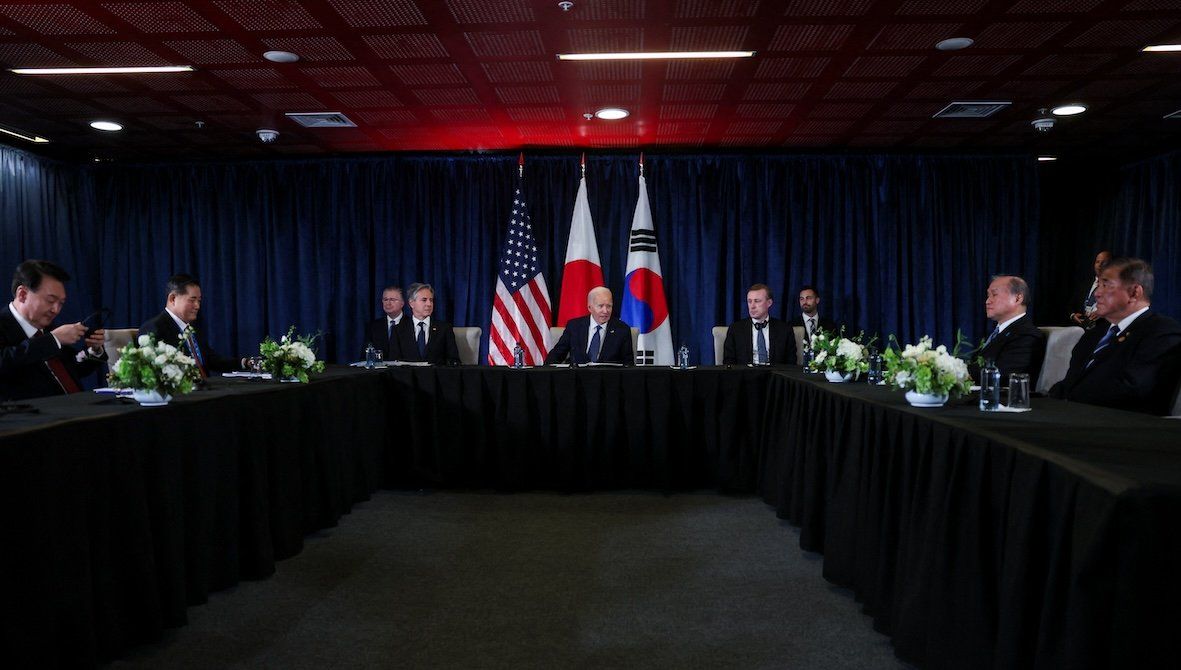In a joint press conference on Friday at the APEC summit in Lima, Peru, US President
Joe Biden, South Korean President
Yoon Suk-yeol, and Japan’s Prime Minister
Shigeru Ishibawarned of the latest “dangerous and destabilizing” cooperation between Russia and North Korea. They condemned the inking of a new military treaty between Moscow and Pyongyang, which will see up to 12,000 North Korean troops bolster Russia’s border with Ukraine.
The next day, Japan’s foreign minister, Takeshi Iwaya, met his Ukrainian counterpart, Andrii Sybiha, in Kyiv, to reaffirm Tokyo’s support for Ukraine and discuss further sanctions against Russia. Sybiha accused Pyongyang of feeding Moscow’s war machine in exchange for access to Russian military program, including missiles and nuclear weapons. Then on Sunday, Japan announced it will begin holding regular joint exercises with US troops in Australia starting in 2025, as those three countries strengthen their security ties amid growing threats from China.
Predictably, Pyongyang is not amused. On Sunday,
North Korean state media warned that it is “impossible to sit idly by” as Japan boosts its long-range strike capabilities and accused Japan of having “war fever.” Japan’s new government plans to further
increase defense spending in “counterstrike capabilities,” including a stockpile of long-range cruise missiles, as the world “has entered a new era of crisis.”
